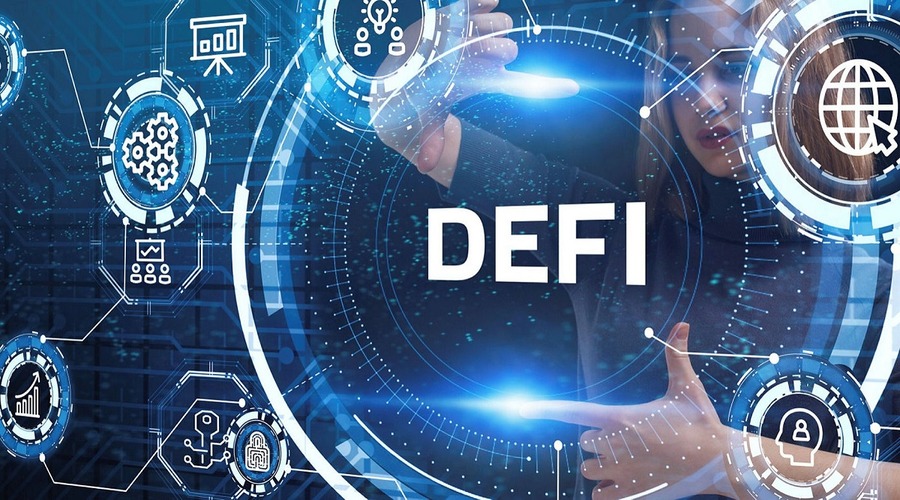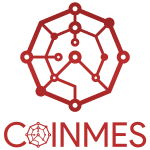Decentralized Finance (DeFi) has emerged as a revolutionary force in the world of finance, enabling individuals to transact, lend, borrow, and invest without relying on traditional intermediaries. While DeFi protocols offer numerous benefits, ensuring effective governance and security becomes crucial to maintain trust and stability within these decentralized systems. In this article, we will explore the significance of governance in DeFi and discuss key security measures to protect users and their assets.
Introduction to DeFi Protocols
DeFi protocols are blockchain-based platforms that facilitate various financial activities, including decentralized lending, trading, and asset management. These protocols operate using smart contracts, which are self-executing agreements powered by blockchain technology. The decentralized nature of DeFi eliminates the need for intermediaries such as banks, allowing users to have direct control over their assets and engage in permissionless transactions.
Importance of Governance in DeFi
Governance plays a pivotal role in ensuring the efficient functioning of DeFi protocols. It enables token holders to collectively make decisions regarding the protocol’s operations, upgrades, and parameters. Through governance mechanisms, stakeholders can voice their opinions, propose changes, and vote on important matters. Effective governance enhances transparency, decentralization, and community involvement, fostering a sense of ownership and responsibility among participants.
Key Components of Governance in DeFi
- Token Holders and Voting Rights: Token holders in DeFi protocols typically possess voting rights proportional to their holdings. This allows them to participate in decision-making processes, such as protocol upgrades or parameter adjustments. Voting rights can be utilized to influence the direction and development of the protocol, ensuring alignment with the community’s interests.
- Governance Tokens and Staking: Governance tokens serve as a medium of exchange for voting and governance rights. Token holders can stake their tokens to demonstrate their commitment and earn additional rewards, such as staking incentives or protocol fees. Staking encourages active participation and strengthens the community’s decision-making power.
- Governance Proposals and Decision-Making: Governance proposals serve as a formal way to introduce changes or improvements to DeFi protocols. These proposals are submitted by token holders and require community voting for approval. Decision-making processes are typically carried out through on-chain voting mechanisms, where each vote represents the weight of the voter’s stake.
Security Challenges in DeFi

While DeFi protocols offer decentralized and open financial services, they are not immune to security risks and vulnerabilities. It is essential to address these challenges to ensure the safety of users’ funds and the stability of the entire ecosystem.
- Smart Contract Vulnerabilities: Smart contracts are the backbone of DeFi protocols, and any vulnerabilities in their code can be exploited by attackers. Common issues include coding errors, logic flaws, and unforeseen interactions between different components. Regular code audits, formal verification, and rigorous testing can help identify and mitigate these risks.
- Economic Attacks and Exploits: DeFi protocols often involve economic incentives, and attackers may attempt to exploit these incentives for personal gain. Examples include flash loan attacks, liquidity pool manipulations, and arbitrage exploits. Security measures such as multi-signature wallets, time locks, and circuit breakers can be implemented to mitigate these risks.
- Governance Attacks: Governance attacks occur when malicious actors gain control over the governance mechanisms of a DeFi protocol. By accumulating a significant number of governance tokens, attackers can manipulate voting outcomes and make decisions that benefit them at the expense of the community. Ensuring decentralized decision-making and preventing governance centralization is crucial to mitigating such attacks.
Ensuring Decentralized Decision-Making
To ensure decentralized decision-making in DeFi protocols, it is essential to implement robust governance mechanisms and encourage active participation from the community.
- Transparent Governance Processes: Transparent governance processes foster trust and accountability. Protocols should provide clear documentation on governance mechanisms, voting procedures, and proposal discussions. Transparent decision-making enhances the legitimacy of governance outcomes and encourages participation from a diverse range of stakeholders.
- Active Participation and Voting: Active participation from token holders is vital for effective governance. Protocols can incentivize participation through voting rewards, delegation mechanisms, and education initiatives. Encouraging token holders to vote on proposals ensures a broader representation of community interests and strengthens the legitimacy of decisions.
- Community Audits and Security Measures: Regular security audits by independent third parties help identify and address vulnerabilities in DeFi protocols. Additionally, establishing bug bounty programs and rewarding researchers for discovering vulnerabilities can incentivize proactive security measures. Collaboration with reputable security firms and engaging the community in security discussions can further enhance protocol resilience.
The Role of Decentralized Oracles
Decentralized oracles provide external data to DeFi protocols, enabling them to access real-world information for decision-making. Oracles ensure the accuracy and reliability of off-chain data, such as asset prices, market conditions, and external events. Integrating decentralized oracles enhances the security and trustworthiness of DeFi protocols.
Collaborative Security Approaches
DeFi protocols can adopt collaborative approaches to enhance security and resilience.
- Bug Bounties and Audits: Implementing bug bounty programs incentivizes ethical hackers to identify vulnerabilities and report them for a reward. Regular security audits by reputable firms provide an additional layer of scrutiny and help identify potential weaknesses in the protocol’s codebase.
- Security Partnerships: Establishing partnerships with security-focused organizations and blockchain communities can help share best practices and leverage collective expertise. Collaborative efforts ensure a wider security net and enable protocols to learn from the experiences of others.
- Continuous Monitoring and Upgrades: DeFi protocols should continuously monitor and update their systems to address new security challenges and emerging risks. This includes keeping up with the latest advancements in smart contract security, adopting best practices, and promptly applying patches or upgrades when necessary.
The Importance of Education and User Awareness
Education and user awareness play a vital role in ensuring the secure participation of users in the DeFi ecosystem. Protocols should provide educational resources, tutorials, and guides to help users understand the risks and security best practices in DeFi. Topics such as wallet security, avoiding phishing attacks, and conducting due diligence on DeFi projects should be covered comprehensively. By empowering users with the necessary knowledge, they can make informed decisions and take appropriate security measures to protect their assets.
Additionally, protocols can organize webinars, workshops, and community-driven initiatives to promote user awareness and facilitate discussions on security-related topics. Creating a culture of security consciousness within the community strengthens the overall security of the ecosystem and fosters responsible participation.
The Future of Governance in DeFi
As DeFi continues to evolve, the future of governance holds immense potential. New governance models and mechanisms are being explored to enhance decentralization, inclusivity, and decision-making efficiency.
- Decentralized Autonomous Organizations (DAOs): DAOs represent the pinnacle of decentralized governance in DeFi. These organizations are governed entirely by smart contracts, eliminating the need for centralized entities. DAOs enable token holders to have direct control over the decision-making processes, with voting rights determined by the number of tokens held. By removing intermediaries and enabling direct participation, DAOs aim to create more transparent and equitable governance systems.
- Liquid Democracy: Liquid democracy is an emerging governance model that combines representative and direct voting. In this model, token holders can delegate their voting power to trusted representatives, who can then vote on their behalf. This delegation mechanism allows for efficient decision-making while maintaining individual token holder sovereignty. Liquid democracy enables the participation of both highly engaged community members and those who prefer to delegate their voting power to others.
- On-Chain Governance Experiments: Various protocols are experimenting with on-chain governance mechanisms to improve decision-making efficiency. Quadratic voting, where voting power is proportional to the square root of the number of tokens held, aims to address voting inequality and avoid governance capture by large stakeholders. Futarchy, a governance model that combines prediction markets and voting, uses market predictions to guide decision-making. These experiments seek to refine governance models and make them more robust and fair.
Conclusion
Governance and security are fundamental pillars in the world of DeFi protocols. Effective governance ensures decentralized decision-making, transparency, and community involvement, fostering a robust ecosystem. Security measures protect users’ assets, mitigate risks, and maintain trust. By combining strong governance mechanisms, collaborative security approaches, and user education, the DeFi community can pave the way for a decentralized and secure financial future.
FAQs
- How do governance tokens work in DeFi protocols?
Governance tokens represent voting and decision-making rights in DeFi protocols. Token holders can use these tokens to participate in governance processes, propose changes, and vote on important protocol matters. - What are some common security risks in DeFi?
Common security risks in DeFi include smart contract vulnerabilities, economic attacks, and governance attacks. These risks can lead to financial losses and undermine the integrity of the protocols. - Can decentralized governance prevent all attacks?
While decentralized governance enhances the security of DeFi protocols, it cannot prevent all attacks. However, it allows for faster responses, community-driven solutions, and the ability to adapt to emerging threats. - How can users actively participate in governance processes?
Users can actively participate in governance processes by acquiring governance tokens, staking them, and voting on proposals. Staying informed about protocol updates and engaging in community discussions also contribute to active participation. - Are there any regulatory challenges for DeFi governance?
Yes, DeFi governance faces regulatory challenges in various jurisdictions. Governments are exploring ways to regulate DeFi to address concerns related to investor protection, anti-money laundering, and market stability.
I have over 10 years of experience in the field of cryptocurrency and have written numerous books on the subject. I am a highly sought-after speaker and consultant on all things crypto, and my work has been featured in major media outlets such as The Wall Street Journal, CNBC, and Forbes. I am also a regular contributor to CoinDesk, one of the leading publications in the space. In addition to my writing and consulting work, I am also an advisor for several blockchain startups.

